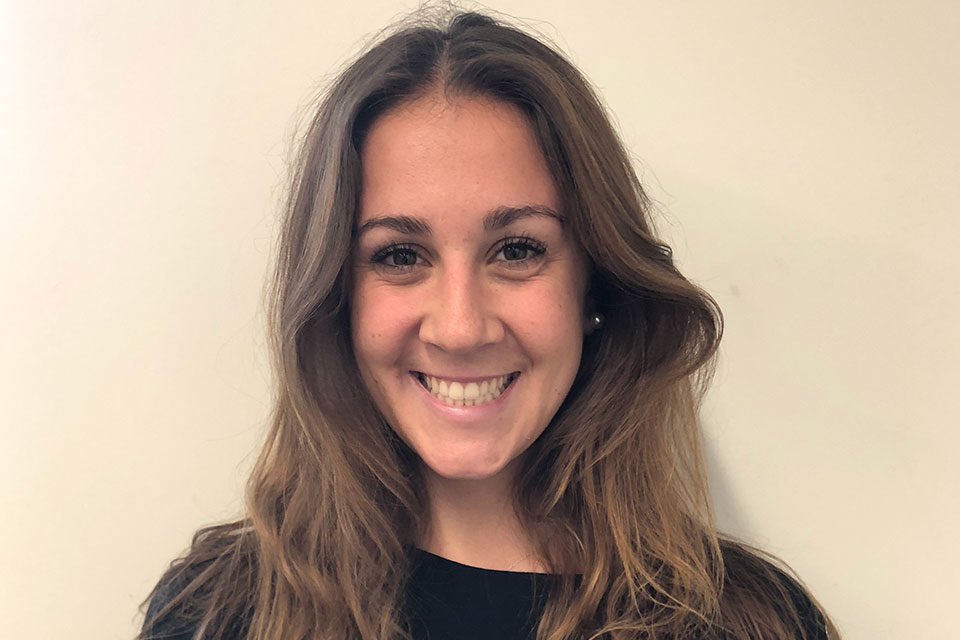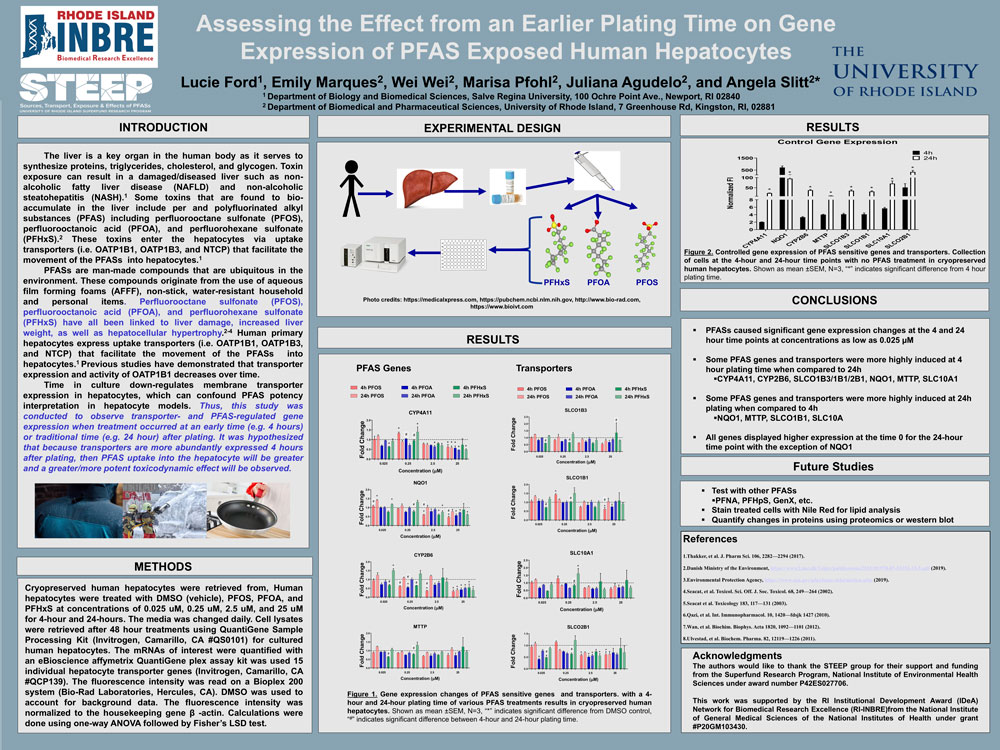Academic Tuesdays: Lucie Ford wins competitive toxicology research award

Lucie Ford ’20, biology major and chemistry minor from Moncton, New Brunswick, in Canada, is one of 21 student researchers from across the U.S. to win a competitive Pfizer Society of Toxicology (SOT) Undergraduate Student Travel Award.
Ford was recognized for her research on the adverse health impacts of per- and polyfluoroalkyl chemicals that are found in many everyday household items such as frying pans, rain jackets, food packaging and stick-resistant products.
As an award winner, her research poster abstract, “Time to Treatment after Plating Impacts PFAS Induction of Gene Expression in Cryopreserved Human Hepatocytes,” was accepted for presentation at the SOT Annual Meeting, originally scheduled for March 15-19 in Anaheim, California.
Due to the coronavirus outbreak, that meeting of 6,500 scientists – the largest toxicology conference and exposition in the world – was canceled. The SOT instead is building out a virtual meeting place where Ford’s work will be featured alongside the work of the world’s top researchers.
“The chemicals found in these per- and polyfluoroalkyl substances collect in our bodies, specifically in the region of our liver, and will remain there for up to 6.5 years,” Ford explained. “These persistent chemicals have been linked to various adverse health conditions such as non-alcoholic fatty liver disease and others.”
In studying these chemicals, researchers treat frozen human liver cells at various concentrations. “My goal was to see if the time in which the cells are plated has a difference in the uptake of these chemicals due to the fact that previous literature says that as time progresses, the gene expression for the transporters decreases, “ Ford said. “Therefore, at an earlier time point there would be a higher expression of the chemical transporters, which allows for more PFASs to enter the liver cells.”
Despite losing out on her travel award and the opportunity to present at the SOT conference, Ford looks forward to sharing her work in the virtual environment.
“I’ll be uploading my poster to the e-poster section for SOT,” she said. “In addition, one of the grad schools that I have been accepted to is going to do a mini-conference where I will present my research, but the date is TBD.”

Ford, a Fulbright U.S. Student Program finalist, plans to continue her research in the field of toxicology in the fall at one of the graduate programs she has been accepted into. She credited her Salve Regina professors, Dr. Jameson Chace, Dr. Susan Meschwitz and Dr. Steven Symington with being instrumental in her success. She also said it was her cell biology instructor Joseph Schrader, visiting assistant professor, who sparked her interest in the field of pharmaceutical sciences.
Check out stories every Tuesday that showcase the world of academics at Salve Regina and how faculty, programs and students are innovating with remote living and learning during Virtual Salve. #academictuesdays #salvesgotthis


